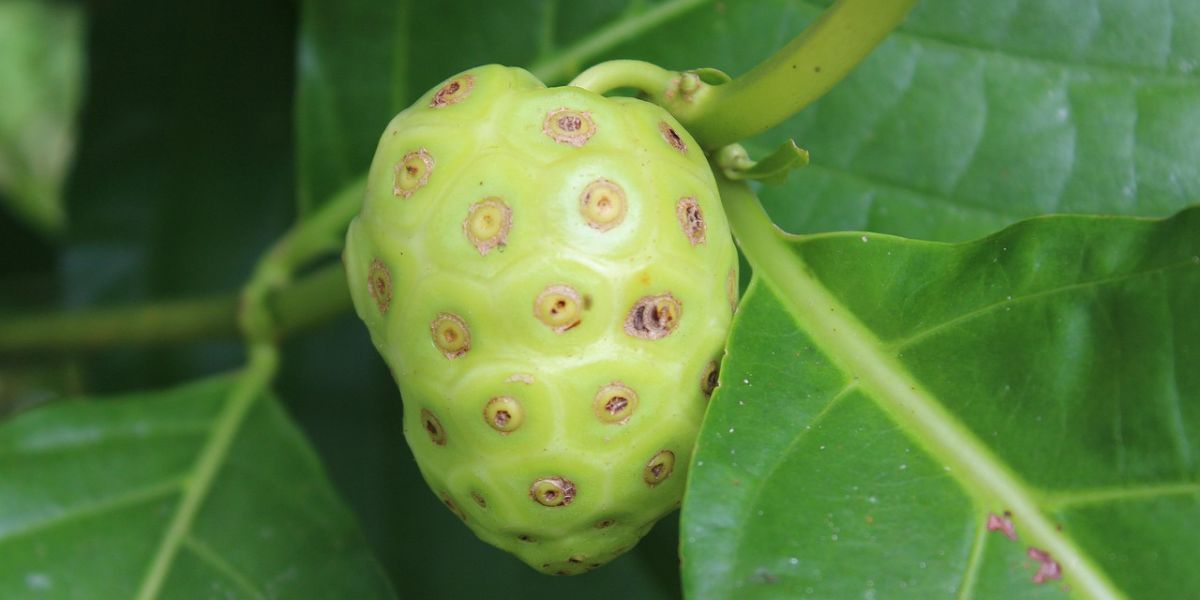Kapanlagi.com - Noni, or scientifically known as Morinda citrifolia, may not be a fruit that we often hear about or encounter. With a sharp aroma and an unappetizing texture, noni is often overlooked. However, don’t be mistaken! Behind its unappealing appearance, this fruit holds a wealth of incredible benefits for our health.
Ranging from helping to lower uric acid levels to maintaining skin beauty, noni has properties that are worth considering. Traditionally, this fruit is usually processed into juice or boiled water. The boiled noni water is believed to lower cholesterol and blood sugar levels, as well as strengthen the immune system in fighting various diseases. With the right boiling process, we can ensure that all the essential nutrients in this fruit are preserved, so we can fully enjoy its benefits.
In this article, let’s explore the steps to properly boil noni fruit, so we can obtain its benefits optimally. Additionally, we will discuss how this brew can contribute to our overall body health.
1. Getting to Know the Content and Benefits of Noni Fruit
Noni fruit, the superfood that may not be widely known, holds a wealth of extraordinary benefits for body health. With its anthraquinone content that stimulates collagen production, noni plays an important role in combating the signs of premature aging.
Not only that, this fruit is also rich in antioxidants such as flavonoids and selenium that protect body cells from free radical attacks. Research even reveals that the terpenoid and xeronine compounds in noni can accelerate cell regeneration and address various health issues.
Its benefits also extend to skin beauty; the vitamin C contained in noni helps brighten the face and reduce dark spots caused by sun exposure and pollution.
2. Preparation and Selection of the Right Noni Fruit
Before you boil noni fruit, make sure to choose the best ones to keep their nutrients intact. Select fruits that are ripe, but not too soft—fruits still hanging on the branches of the tree are usually fresher and free from bacterial contamination.
After obtaining quality fruits, wash them thoroughly with running water, and use a soft brush to ensure the skin is free from dirt. If you want to reduce its slightly bitter taste, soaking it in salt water before boiling can be a smart choice.
This careful preparation is very important, as it will affect the taste and efficacy of the noni decoction you make, thus optimizing its health benefits.
3. How to Boil Noni Fruit Correctly
Here are the steps to boil noni fruit using the right method to maintain its benefits:
- Prepare the ingredients – Use 2 ripe noni fruits and 400 ml of clean water. If you want to add natural sweetness, also prepare 1 tablespoon of honey.
- Cut and squeeze the noni – Slice the noni fruit into several pieces, then gently squeeze it so that the juice is easier to extract when boiled.
- Boil in boiling water – Place the noni pieces into the heated water. Boil for about 10 minutes until the water changes color.
- Strain the boiled water – After boiling, strain the water using a clean cloth or fine strainer to avoid drinking the pulp.
- Add honey and serve – To reduce the bitter taste, add enough honey before drinking.
This noni decoction is best consumed while still warm to be more effective in helping the body absorb its nutritional content.
4. Benefits of Boiled Noni Water for Health
Boiled noni water has various health benefits that have been scientifically proven. Here are some of them:
- Reduces uric acid – The anti-inflammatory content in noni can help relieve joint pain and lower uric acid levels in the body.
- Controls cholesterol and blood sugar – The flavonoid compounds in noni play a role in lowering LDL (bad cholesterol) levels and maintaining blood sugar balance.
- Boosts immune system – The antioxidant properties of noni can help the body fight free radicals and strengthen the immune system.
- Maintains skin health – Noni is rich in vitamin C, which can help rejuvenate the skin and address dark spots and wrinkles.
5. Safety and Dosage of Boiled Noni
Although boiled noni is known to be safe for consumption, it is important to be cautious about the amount, as excessive intake can trigger digestive disturbances. The recommended dosage varies; for healthy individuals, 30-60 mL is advised, while for those who are ill, it can reach up to 180 mL.
However, remember that this is just a general guideline that should be adjusted to each individual's condition. Always consult with a doctor or health professional before using boiled noni as a treatment, especially if you have existing health issues or are undergoing treatment.
6. Is noni leaf tea safe for everyone?
In general, noni leaf tea is safe to consume in moderation. However, for those with kidney disease or pregnant women, it is advisable to consult a doctor before consuming it.
7. How many times a day should one consume noni leaf tea?
It is recommended to drink 1 glass a day, especially in the morning or evening, so that the body can absorb its benefits more easily.
8. How to reduce the strong odor from noni?
You can soak pieces of noni in salt water before boiling them or mix them with honey and ginger to make them taste better.
(kpl/rmt)
Disclaimer: This translation from Bahasa Indonesia to English has been generated by Artificial Intelligence.












